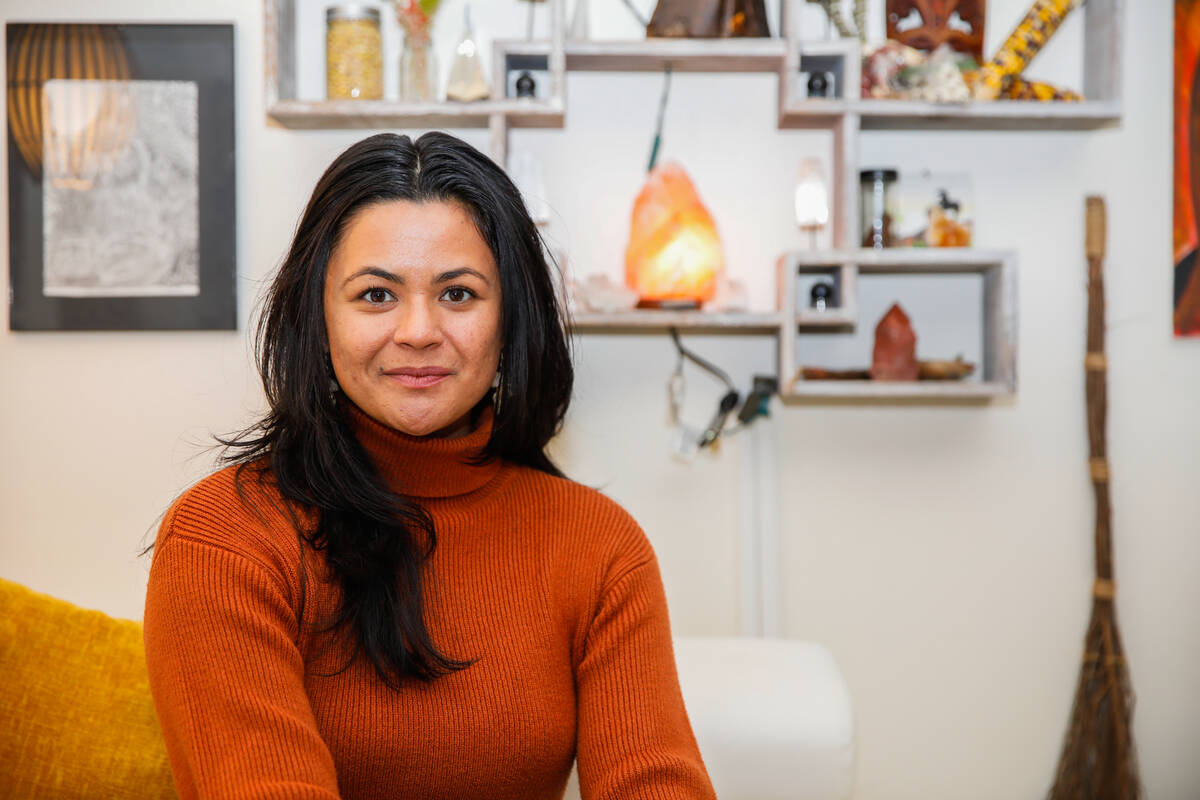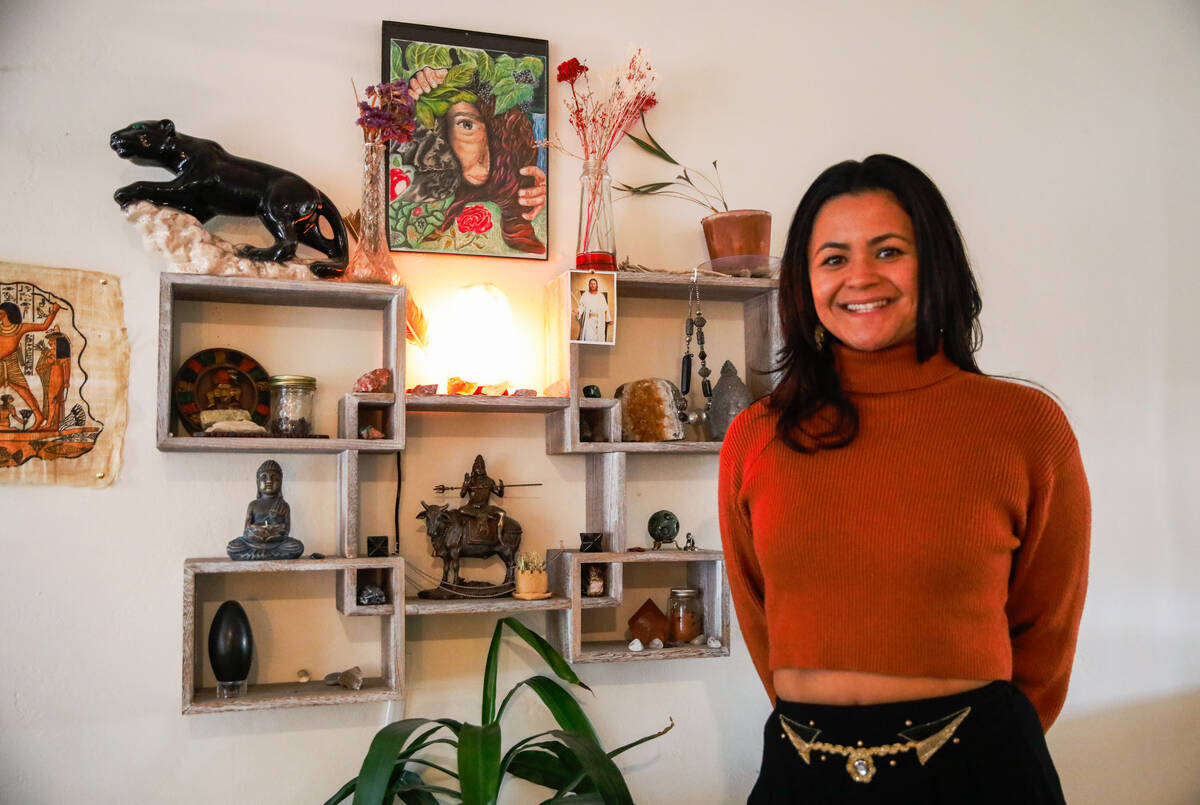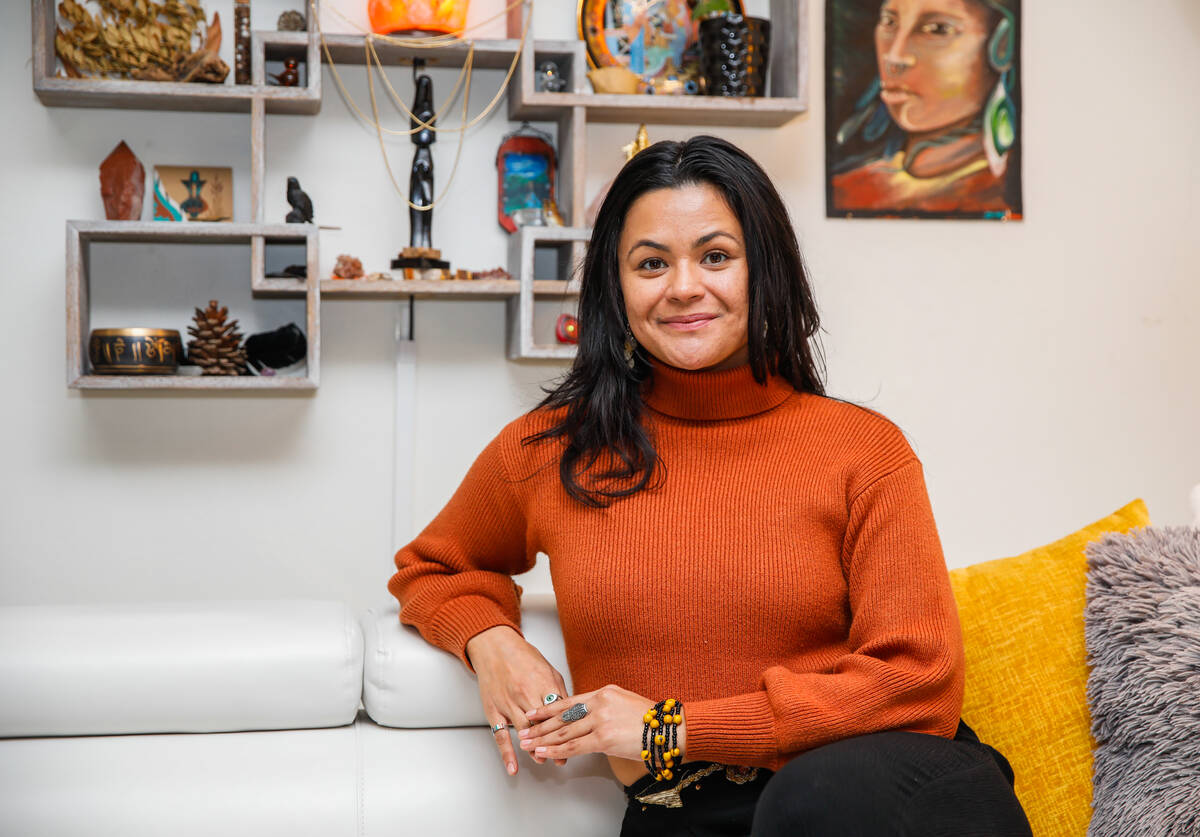‘Taking root’: Nevada’s future with psychedelic therapy
When Rebecca Kerl first took the legal psychedelic ketamine, she felt her depression break apart quickly. Her brain felt more open and receptive. When she went to therapy after, it felt like the therapy was “actually taking root,” she said.
“It’s a very, very different way of doing therapy, but it’s also incredibly beneficial,” said Kerl, a mental health counselor in Las Vegas. “I mean, I’ve just seen miraculous things. There’s just nothing like it.”
While most psychedelic drugs remain illegal, that could change as their health benefits become more widely known both in the United States and Nevada, where further psychedelic-assisted therapy could be on the horizon.
Gov. Joe Lombardo approved Senate Bill 242 during the last legislative session establishing a psychedelic medicines working group that will study issues relating to the therapeutic use of entheogen, or psychedelic drugs such as psilocybin, also known as magic mushrooms.
The bill originally included language to decriminalize the adult possession of four ounces or less of magic mushrooms, but that section was removed during the session and was replaced with the working group proposal. Once the group is formed — which the governor’s office expects to happen by early 2024 — it will study different issues relating to psychedelic medicines and provide recommendations to the Legislature for the next session in 2025, which could include recommending decriminalization of certain psychedelics.
‘Engaged in life again’
Assemblyman Max Carter, one of the bill’s sponsors, has seen firsthand the benefits of psychedelic-assisted therapy. After he lost his wife about six years ago, he suffered from severe depression, anxiety and post-traumatic stress disorder, he said.
He hit bottom a couple of times, so his psychiatrist recommended ketamine therapy, Carter said.
Ketamine is a kind of anesthetic that is given to treat disorders such as depression and anxiety, PTSD and substance abuse disorders, said Melly Paluay, a registered nurse at Klarity Ketamine Clinic of Las Vegas. Ketamine has been used since the 1970s for medical purposes nationally, but the first time it was used in Nevada to treat anxiety, depression and substance abuse disorders was in 2016 with the opening of Klarity Ketamine Clinic, she said.
It is only legal for medicinal use. The Las Vegas Valley has at least five ketamine clinics.
After about six sessions, Carter’s life turned around. For the first time, he felt “fully engaged in life again,” he said.
He believes psychedelic-assisted therapy can heal other Nevadans, from veterans and law enforcement officers to survivors of gun violence.
Other psychedelics have shown similar benefits, but their journey to legal use in a clinical setting is ongoing. Discussions around decriminalization and therapeutic use are complicated, as advocates work to erase deeply entrenched negative views of the drugs while pushing for policies that are considerate of cultural and historical uses of the medicines.
“I know that change sometimes takes a minute,” Kerl said. “And as more and more states are looking at this, I think it’s great that Nevada is trying to put ourselves at the front of this.”
‘New thoughts and connections’
Psychedelic medications differ from that of other classes of medication, according to Dr. Burton Tabaac, section chief of neurology at Carson Tahoe Health. A patient can take an antibiotic anywhere, whether it’s the beach or a classroom, and receive its benefits. Psychedelics, on the other hand, depend on the setting used, he said.
They also get to the core root of the problem and allow patients to receive the most long-lasting benefit, often from a single dose, which is different from taking daily medication, he said.
“If you think of your mind as a snow-covered hill in which your thoughts are a sled, over time those grooves are dug deeper and deeper, making it difficult to escape the paths that are created,” Tabaac said. “The paths are representative of our internal dialogue, which then become ingrained.”
The medicines allow for a fresh round of snow to be laid, giving way for new thoughts and connections, said Tabaac, who also serves as a special adviser to the board of the McKenna Academy of Natural Philosophy, a nonprofit organization dedicated to the study of plant medicines.
Psychedelic-assisted therapy is not supposed to replace talk therapy. On the contrary, patients should couple the treatment with their regular therapy. A patient is in a critical period after receiving the treatment where their mind is more open and talk therapy’s benefits are maximized, Tabaac said.
“The brain is in a malleable state where they’re open to change and to thinking about things differently to catalyze that shift in perception,” he said.
How it works
During ketamine treatment, a doctor administers the drug through an IV and nurses monitor the patient’s vitals to make sure they’re safe, Paluay said. Patients are encouraged to wear an eye mask and headphones, and to look inward, Tabaac said.
For Paluay, who was given ketamine during her training, the drug helps her move through big emotions like grief.
“If grief is a boulder that I’m pushing around every day, under ketamine, that boulder disintegrates into, like, a pebble,” Paluay said. “I can see clearly past it, and I’m not pushing around with my head down. I’m not pushing a boulder around, and I can breathe.”
The number of treatments necessary varies from person to person, Paluay said. Some see lasting benefits with just one treatment, some go for six different sessions, and others go every six months.
Because everyone’s brains are different, people’s experiences vary, Kerl said. Some people experience a lot of visions, colors or intense feelings, and some feel at peace, Kerl said.
The history
For some, psychedelic-assisted therapy is seen as the next potential breakthrough to treat psychiatric illnesses, but “Earth-based” psychedelic medicines, such as magic mushrooms, have been used by Indigenous people for sacred and ceremonial purposes since time immemorial, said Gemma Andaya, a licensed professional counselor who has been in the behavioral health field for 10 years.
“It’s really, really hurtful in my experience, to hear that this is a ‘movement’ and a ‘renaissance,’” she said. “As if this has appeared into consciousness, you know, like in the last even 100 years when we have records of Indigenous people … stewarding and utilizing these medicines in ceremonial rites, for healing for people and for communities.”
From an Indigenous perspective, Andaya said, everything is tied together. Earth medicines connect people to nature and heal on multiple planes, including an emotional plane and astral planes, she said. In ceremonial practices involving Earth medicines, Andaya has experienced a greater sense of compassion and empathy for people suffering around the world. She said she also gained consciousness about personal and ancestral trauma.
Even though they are of great importance to Indigenous culture and research has shown their benefits, there is still a negative perception of the medication.
Many of the psychedelic drugs are classified as a Schedule 1 drug, which suggests they lead to dependence, Tabaac said. The Drug Enforcement Administration also classifies drugs as Schedule 1 if there is no currently accepted medical use for them. But that is a political designation and not a medical one, he said.
“Because of Nixon’s war on drugs, there’s still a lot of misconception and judgment that dates back to that era,” Tabaac said.
Developments
That war effectively halted research into psychedelics, according to a 2022 report published in the National Library of Medicine. But in the past several years studies have re-emerged to investigate psychedelic medicines like MDMA and psilocybin, both in the United States and in Nevada.
At UNLV, for example, neuroscientists Dustin Hines and Rochelle Hines study the possible benefits of psychedelics. Tabaac also is in the process of getting a clinical trial in Carson City to study a compound called Ibogaine for promoting healing for patients with traumatic brain injury.
While conversations have focused on psychedelics’ benefits on treating depression, anxiety and PTSD, there’s also potential for them to have benefits beyond the mental health space — for treating dementia, Parkinson’s disease or traumatic brain injuries, according to Tabaac, who applied to be a member of the state working group.
Kerl also applied to be a member of the working group. As a counselor, she works with people with autism, and she herself is autistic. She noticed that ketamine lessened her autism symptoms and made her feel more connected to her body. Kerl is applying to doctoral programs, where she plans to study ketamine’s effect on people with autism.
Some states already have taken steps to approve usage of some psychedelics. Oregon now offers psilocybin therapy, and Colorado voters agreed last year to legalize psilocybin.
MDMA, also known as ecstasy, also could become decriminalized in some uses. One study published in Nature Medicine testing MDMA-assisted therapy for PTSD found that 67 percent of people no longer met diagnostic criteria for PTSD two months after treatment.
The Food and Drug Administration is considering approval of MDMA for therapeutic use, and Australia became the first country to legalize the clinical prescribing of MDMA.
Future of psychedelic therapy
In addition to continued medical research, other barriers need to be addressed in order to one day see the medication be widely used to treat mental health.
Education on psychedelic-assisted therapy also needs to be offered, both to the general public and to the upcoming generation of doctors, Tabaac said. In medical school, students are not taught about psychedelics, he said.
Andaya wants to see legislative bodies put policies in place to prevent the exploitation of Earth medicines, and to protect their ceremonial usage.
Societal barriers also will need to be addressed, Kerl said. Ketamine treatments are not inexpensive, and they are not covered by insurance, she said. The Silver State is sometimes seen as a black hole in the west where medical services are lacking, she said, but that could change.
“I do see a future where this is more available,” she said. “I do see a future where people are learning more about these substances, learning the history of them, and realizing, like, ‘Oh, there is benefit.’”
Contact Jessica Hill at jehill@reviewjournal.com. Follow @jess_hillyeah on X.















